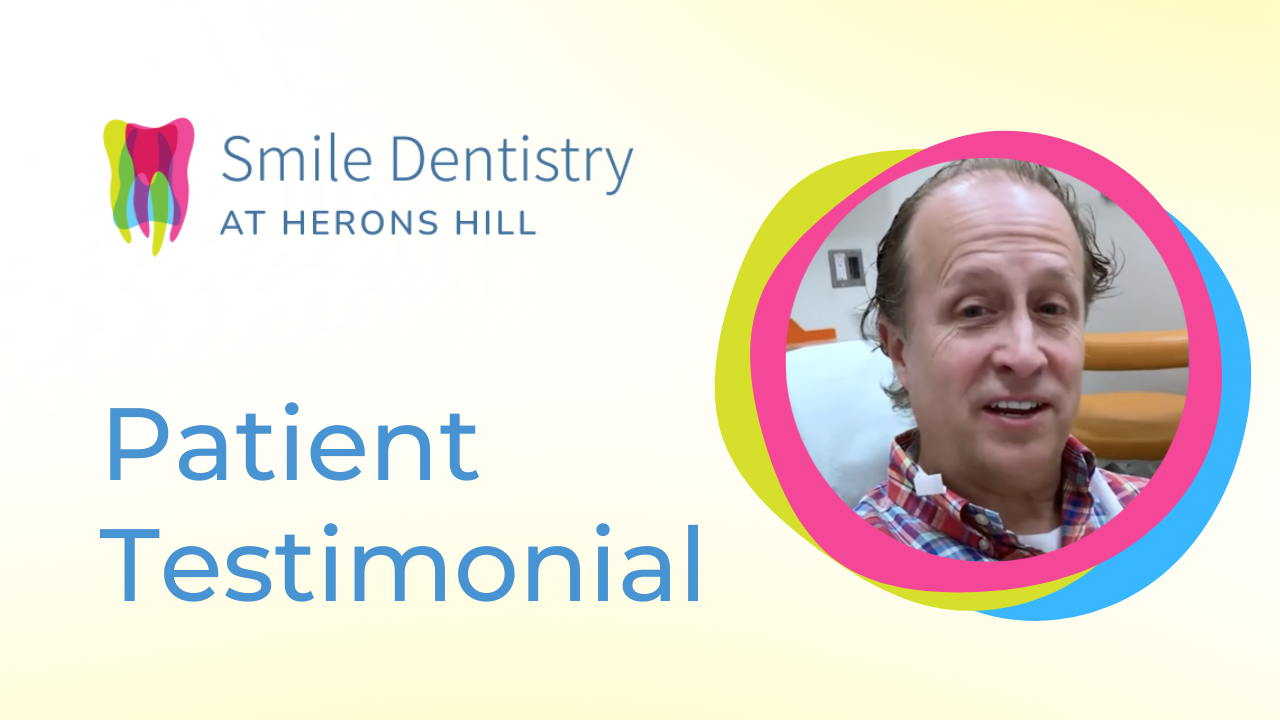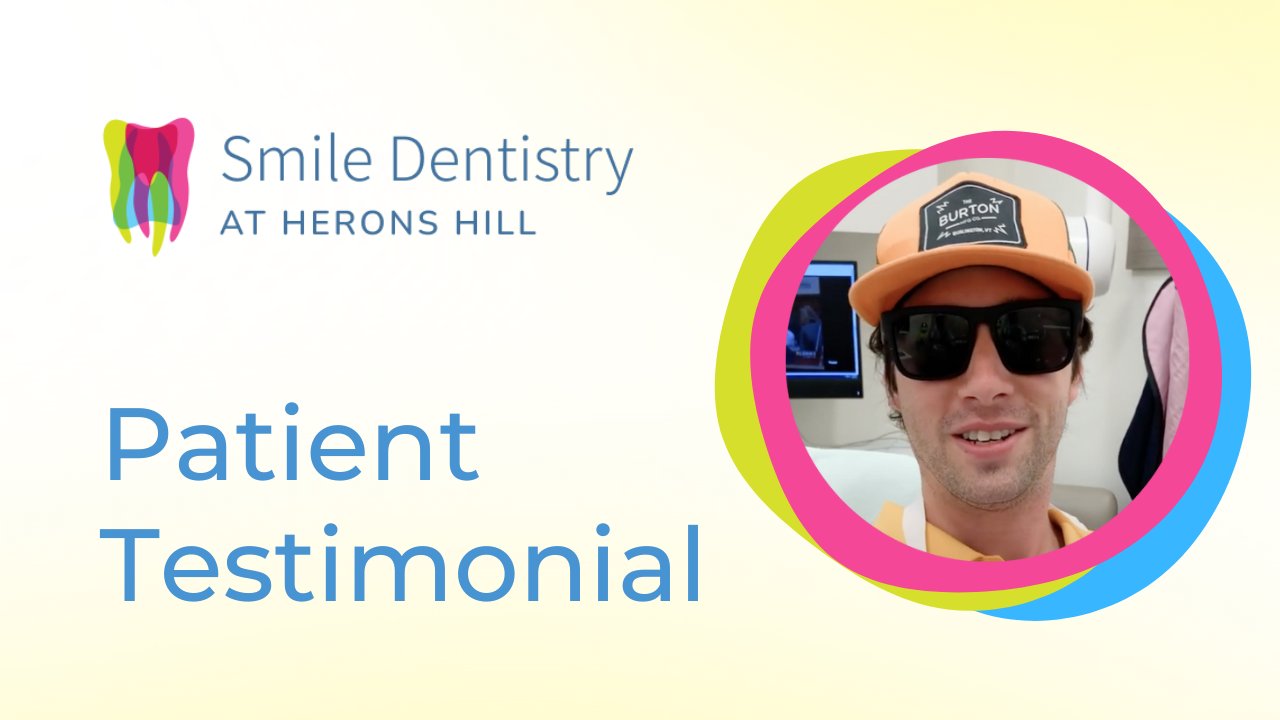
What Is Dental Bonding?
At Smile Dentistry at Herons Hill, we harness the versatility of composite resin – identical to the material used in composite fillings – to meticulously sculpt your tooth. Whether your tooth is chipped, cracked, or broken, our Bonded Restoration service promises a seamless ‘rebuild’ using composite resin, revitalizing your tooth to like-new condition. This repair is not just about restoration; it’s engineered to endure. By skillfully reshaping teeth, correcting discolourations, and closing gaps, we offer an elegant alternative to veneers, all while accentuating the natural beauty of your smile.
How Does Dental Bonding Compare To Other Options?
We understand that every patient has unique dental needs and aspirations for their smile. Our dedicated team take pride in offering personalized consultations to explore all available dental restoration and cosmetic options. When considering dental bonding, it’s important to recognize its distinct advantages:
Quick and Effortless
Unlike treatments requiring extensive preparation like fillings or dental veneers, dental bonding often necessitates minimal to no alteration of your natural tooth. This simplicity typically renders the procedure virtually pain-free.
Cost-Effective
While more comprehensive transformations such as veneers and orthodontics are investments in your smile, dental bonding presents an affordable solution for subtle yet impactful enhancements.
Ideal for Minor Corrections
Dental bonding shines when it comes to making small adjustments. Whether it’s a slight change in tooth shape, colour correction, or closing minor gaps, it offers a straightforward and effective solution.
The Dental Bonding Process
Here’s what you can expect at your dental bonding appointment:
Preparing the tooth
Initially, we ensure the safety of your adjacent teeth by using a dental matrix—a slim, protective plastic barrier. This crucial step prevents any unintended spread of the preparation gel or composite resin. The targeted tooth is meticulously cleaned and a mildly acidic gel is applied, the surface is slightly etched to ensure a strong bond.
Applying the composite resin
Once the tooth is prepped, we carefully select a composite resin that harmoniously matches your natural teeth for an undetectable finish. The resin is skillfully applied in layers, each hardened with a specialized blue light to achieve optimum strength and longevity.After checking your bite, your dental bonding is now complete. As a final touch, the dentist will give your tooth a quick polish. Your bonded tooth will look beautiful and natural. You may even forget which tooth was repaired. We’ll make a note in your chart and at your future exams, the dentist will give some special attention to the bonded tooth to check for any wear and tear.
Finishing touches
After checking your bite, your dental bonding is now complete. As a final touch, the dentist will give your tooth a gentle polish. Your bonded tooth will look beautiful and natural. You may even forget which tooth was repaired. We’ll make a note in your chart and at your future exams, the dentist will give some special attention to the bonded tooth to check for any wear and tear.
Cost of a dental bonding in Toronto
Dental bonding is used for such a wide variety of reasons that it is difficult to provide a ballpark estimate without learning more about your needs and examining your teeth. That being said, typically, it costs approximately $300 to $600 or more per tooth without insurance. Most insurance companies will cover dental bonding, especially if it’s needed to restore a broken or damaged tooth. With insurance, you can expect to pay somewhere around $60 to $120 out of pocket.
- How many teeth you need bonded.
- Whether or not any new x-rays are required.
- How much composite resin will be needed to complete the treatment.
- Where the teeth in question are located in your mouth.
- Your current overall oral health.
When we’re determining the cost of your dental bonding treatment we look at these important factors:
Remember, no dentist can give you an accurate quote over the phone. After an examination, we would love to provide you with an accurate quote in person so that you can find out your final costs and make an informed decision.
Contact us today
to schedule an initial consultation & exam.
Your consultation will include an examination of everything from your teeth, gums and soft tissues to the shape and condition of your bite. Generally, we want to see how your whole mouth looks and functions. Before we plan your treatment we want to know everything about the health and aesthetic of your smile, and, most importantly, what you want to achieve so we can help you get there.
Frequently Asked Questions
The lifespan of dental bonding on your front teeth varies, typically ranging between 4 to 10 years. This duration can be influenced by several factors, including the precise location of the bonding, your personal eating habits, and your daily oral hygiene practices. During routine dental exams, if any signs of wear and tear are observed, additional composite resin can be added to maintain the integrity and aesthetics of your dental bonding.
While dental bonding isn’t permanent, it’s notably durable, often enduring over ten years with proper care, including consistent dental check-ups and maintaining good dietary habits. Should there be any signs of wear, the bonding can be effectively reinforced with more composite resin.
The dental bonding process is generally painless. No anesthesia is needed unless bonding is used to fill a decayed tooth. The procedure involves minimal preparation, and most patients experience no discomfort.
Care for bonded teeth includes regular oral hygiene practices like brushing twice a day and flossing daily. Avoiding hard food, ice, and substances that can stain the teeth (like coffee, tea, and tobacco) will help maintain the bonding.
You can resume your normal activities immediately after the dental bonding procedure. There is no downtime, although it’s advisable to avoid eating hard foods or staining substances for the first 48 hours.









